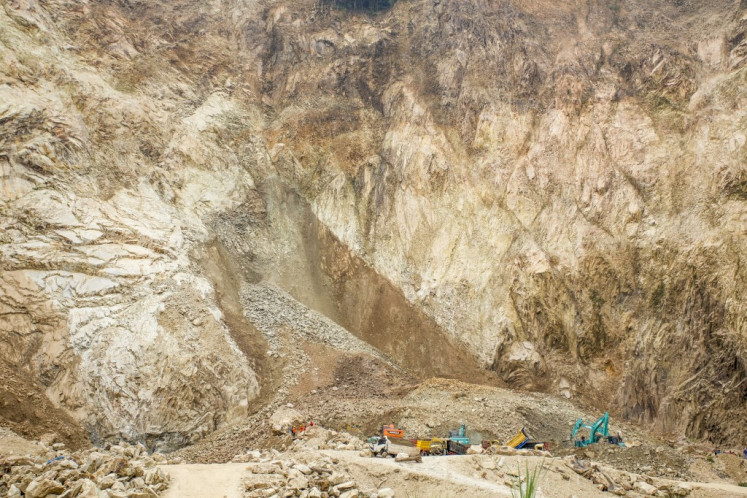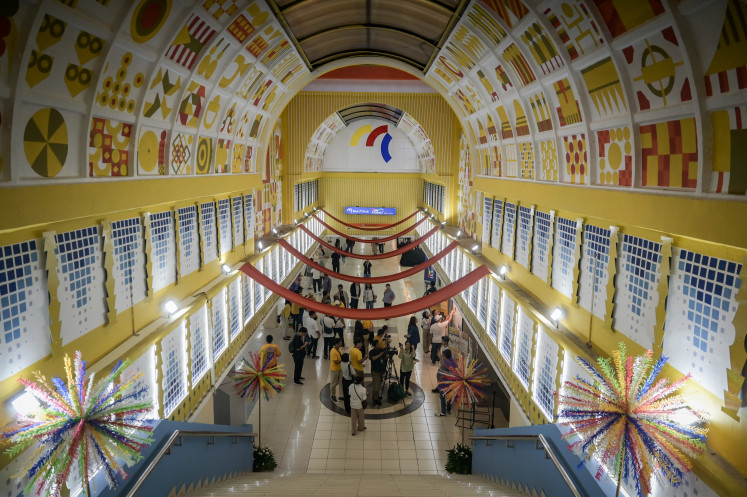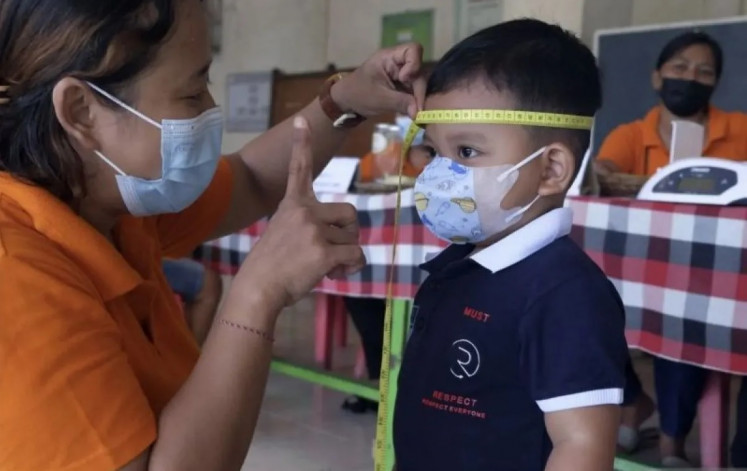Bank Mandiri to cut down bad loans
State-owned lender Bank Mandiri is looking to cut down its bad loans this year through a restructuring program, which it believes will bring the non-performing loan (NPL) ratio to 3
Change text size
Gift Premium Articles
to Anyone

S
tate-owned lender Bank Mandiri is looking to cut down its bad loans this year through a restructuring program, which it believes will bring the non-performing loan (NPL) ratio to 3.5 percent by year-end.
Its gross NPL soared to 4 percent in 2016 from 2.6 percent in 2015, while its net NPL ratio also increased to 1.5 percent from 0.9 percent.
The rising bad loans mostly came from the commercial segment, especially from debtors in the commodity sector due to falling commodity prices, which disturbed the debtors’ repayment ability.
“We project our NPL to be 3.5 percent at the end of 2017. We can still manage increasing bad loans in January and February and predict that the peak will occur in the first quarter,” Bank Mandiri vice president director Sulaiman Arif Arianto said after its annual general shareholder’s meeting on Tuesday.
The bank already restructured Rp 40 trillion (US$2.99 billion) worth of credit so far and is upbeat that commodity prices will continue their existing upward trend, thus providing greater ease to its debt restructuring program.
Bloomberg reported that the possible early return of El Niño and United States’ President Donald Trump’s upcoming renewable fuel regulations may provide headwinds for the price of palm oil, which is one of Indonesia’s major commodities.
If El Niño appears and affects production, prices will go up,” Sime Darby Bhd. managing director Franki Anthony Dass told Bloomberg on Feb. 27. Sime Darby is the world’s biggest grower of palm oil by acreage.
Bloomberg also reported that the US biodiesel mandate had the potential to be a “game changer on the bullish side” for the future of soybean oil, allowing palm oil prices to recover from their recent sell-off.
Mandiri’s bad debts were already showing an increase since the first quarter of 2016, when the gross NPL ratio perched at 3.2 percent, above the 2.6 percent ratio recorded throughout 2015.
It continued rising during the next three quarters, even though Bank Mandiri president director Kartika “Tiko” Wirjoatmodjo claimed the lender would be able to slash the ratio to 3.7 percent by year-end.
By comparison, the gross NPL of state lender Bank Negara Indonesia (BNI) and Bank Rakyat Indonesia (BRI) also climbed last year, though at a lower rate than Mandiri’s. BNI ended 2016 with a gross NPL at 3 percent, while BRI reported a gross NPL of 2.1 percent.
Mandiri’s bad loans forced the bank to double its loan loss provision to Rp 24.6 trillion, causing its net profit to nosedive by 32.1 percent year-on-year (yoy) to Rp 13.81 trillion last year.
Amid the lower profit, the company still set a higher dividend payout ratio of 45 percent for its 2016 operations compared to 30 percent in the previous year. The total dividend amount reached Rp 6.21 trillion or equal to Rp 266.27 per share.
Finance and strategy director Pahala Mansury said its capital adequacy ratio (CAR) — an important measure of capital strength — would fall to 19.5 percent from the current 21 percent following the dividend payment.
“However, our CAR is still above the OJK’s [Financial Services Authority] requirement of 15.5 percent,” he said.
The 15.5 percent NPL is a requirement set for a systematically important bank, as well as a Qualified ASEAN Bank (QAB).
The QAB is the status set for a bank that qualifies to expand to other ASEAN countries. Mandiri is still carrying out efforts to realize full operations in Malaysia.
Mandiri will allocate between Rp 2.5 trillion and Rp 4 trillion for capital expenditure (capex) this year. “The capex includes 100 million ringgit [$22.48 million] for expansion in Malaysia,” he said.
It hopes to open two offices in Malaysia in two years and currently has a property to rent for its first office in Kuala Lumpur.









